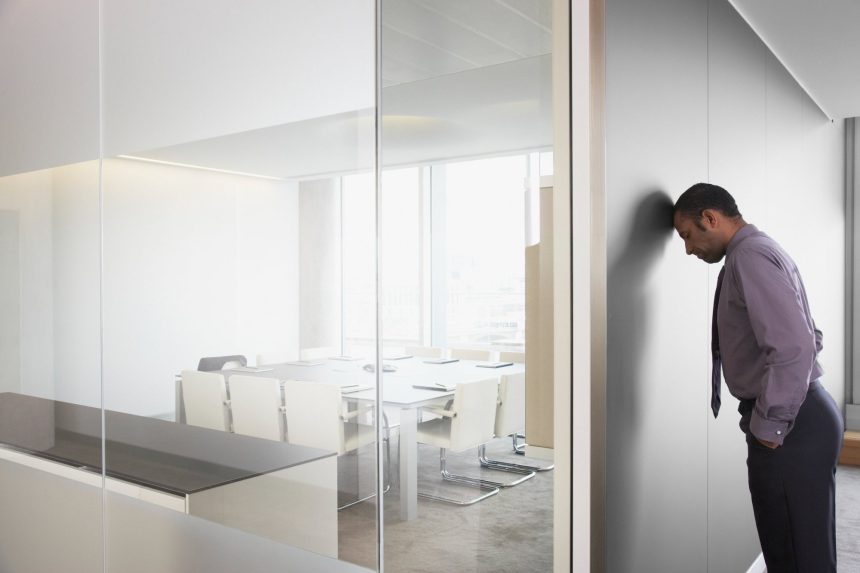When it comes to personal and professional growth, failure has always been seen as something to avoid at all costs. We’ve been conditioned to fear failure and view it as a sign of defeat. Whether at school, work or home, we have never been rewarded when we fail. Because of this, we have also never been taught the value that failing holds.
That’s where the concept of failing forward comes in. This mindset embraces failure as a valuable learning experience. It’s a new movement that encourages growth over perfectionism. And it’s where you’ll find true innovative success for your companies and yourself.
Related: Why You Must Embrace Failure to Succeed in Business
A modern take on an old tale
So, how have you become conditioned to avoid failure? Traditionally speaking, we need to turn our attention to capitalism and productivity. Over time, the concept of “failing” was not seen as being synonymous with “productivity.” Rather, it’s the complete opposite. When looking back on factory workers and laborers, there was no net gain from workers failing at their jobs. What’s more, failing could mean the difference between life and death. If you failed to grow a harvest in the spring, when winter comes, you might have nothing to feed your family. The avoidance of failure served an enormous purpose in basic survival, and this is where the distinction lies.
Where perfectionism limits, failure will overcome
Ultimately, your attempts to be perfect limit you. It signals whatever objective you are trying to become perfect at is an ultimate goal in itself. It gets you to think inside the box. It restricts you and confines you to a set of thoughts and behaviors that are only prescribed toward its objective. Essentially, it is the opposite of innovation. And innovation is not exclusively for the highest levels of business — it can be deployed anywhere.
To be innovative means to look at your repetitive tasks and say, “I can see how this can be done more efficiently.” It is about going out to your field and thinking, “I can see how I can grow more produce this year, but it’s going to be different, and it’s going to need me to take a risk.”
Related: 5 Ways Fear of Failure Can Ruin Your Business
You need safety to innovate and security to fail
I want to challenge your traditional idea of what safety means. Safety is a psychological climate in an organization that allows for certain actions without harm. It means if a team member tries something new and fails, the organizational structures in place will support their growth. It also means norms and beliefs in business culture. It’s when you create a working culture that helps teams to feel secure in stepping out and taking a risk. There are systems that need to be in place to nurture the growth aspect which follows learning through failure. These are the systems you need to think about employing in your business to achieve team growth.
An acceptance of failure creates an organization of success
When we were younger, we were taught how to do anything through failure. Riding a bike, climbing a tree or baking a cake: None of us got it right the first time, and that’s how we grew. We knew if we fell off our bike, we could jump back on, and we knew more now than before how to ride it. When we try to remove the processes of failure from an organization, it creates a false reality of stagnant growth. Teams try and conceal where they are struggling, therefore, they never improve. They just try to look like they’ve got it because they feel they must get it. And this generates systemic lies. The business itself starts to operate from this place, too.
However, when you embrace failure, you embrace the humanity of yourself. You accept your imperfections. This is the real process of perfecting your skills — not the other way around! As leaders, we must create cultures in our organizations that allow and encourage failure as failure is a truth of ourselves. To deny it would be to deny a part of ourselves. When we embrace failure, we promote our teams to think creatively, take risks and start to innovate rather than replicate. It is through providing environmental safety for imperfection that we start to see superstars shine. Through this organizational flexibility, our businesses shine as well.
Related: How to Develop a Positive Relationship With Failure
Put those backward habits of yours away — it’s time to fail forward
The beauty of this approach is that it really is up to us to shape how we see it.
“Yes, that business idea I had four years ago which cost me more than my first car did not work out (failure) — but it did lead me to the idea that ignited my current organization (success).”
“It is true, I totally flunked out on that project I was assigned to years ago and humiliated myself in front of my entire department (failure) — but ever since then, I have always known how to give a successful presentation (success).”
“I know I lost that sale with one of the most important clients I ever had (failure) — but I’m stronger now and wiser, and I am more developed than I ever have been before.”
Every “failure” is another step in your journey — you decide whether you place it behind you or in front of you. Your perception will shape the outcome, and you hold the key. Go on, I dare you to try failing forward. I promise you won’t look back!
Read the full article here










